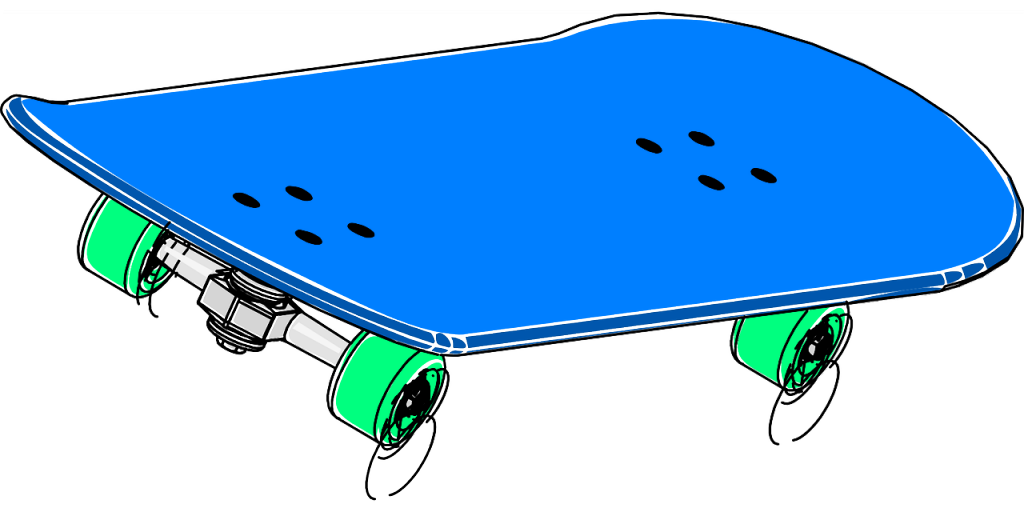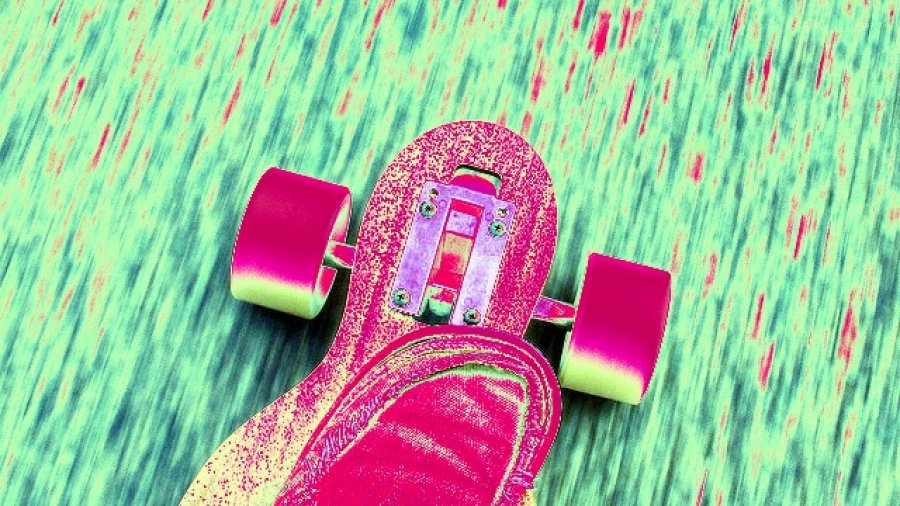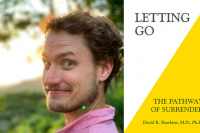Kick, push, kick, push, coast. Kick, push, kick, push, coast.
I reach the crest of a hill on my longboard and pause. The wind is a gentle hand at my back, an encouraging friend. The sun gleams in the sky, imbuing my spring-green surroundings with a delicate sparkle. I breathe deeply through my nose and smile.
I’m not thinking about anything, but if I were to translate my mental state into words, it would be something like, “Here I am. I’m really here. All of this is mine. Thank you.”

Some days I board in silence, preferring the natural chatter of things. On this day I’ve donned my earbuds and am simmering to the song “Touch” from the new Daft Punk album. The vocalist coos:
“Kiss, suddenly alive
Happiness arrive
Hunger like a storm
How do I begin?”
The music coalesces with my mood, enhances the ambience of the moment, melds with everything. I push off, focusing on squarely planting my foot while maintaining my balance, and launch myself down the smooth concrete.
With both feet back on the board, my focus now shifts. I begin carving, back and forth, back and forth, gliding, flying, effortlessly shifting my balance to and fro, flowing.
While my body engages in this subtle dance, this balancing act, my eyes scan the scenery. I intuitively search ahead for pebbles or cracks that could interrupt my ride, while also soaking in the now fast-moving colors of the land in my periphery.
A wave of electric bliss surges through my spinal cord. Impulsively, I raise my hands in the air, an act of reverence, of celebration. Still, my mind is blank. I’m living in a state of immersion. For all practical purposes, “I” has ceased to exist. I’m just energy, one with it All, and I’m doing my thing. Really doing it and nothing more, to the point where it is doing itself.
This mental state is referred to in positive psychology as flow, and it’s a beautiful thing.
Flow: Definitions and History
Flow, as defined by the eternally informative paradise known as Wikipedia, is as follows:
Flow is the mental state of operation in which a person performing an activity is fully immersed in a feeling of energized focus, full involvement, and enjoyment in the process of the activity. In essence, flow is characterized by complete absorption in what one does.
Basically, flow is a sort of oneness with whatever activity you’re performing, a place where you’re entirely “with it”, doing it and being it so completely that you are it, and everything else melts away.
The formal psychological concept of “flow” was first described in the 70s by Mihaly Csikszentmihalyi, a Hungarian positive psychologist. Csikszentmihalyi became fascinated by artists who would become entirely absorbed and “lost in” their work and began researching the phenomena.
Much of Csikszentmihalyi’s work, most notably his book, Finding Flow: The Psychology of Engagement with Everyday Life, centers around the exploration and application of flow in every day life.
Csikzentmihalyi has been open about the fact that he is certainly not the first person to discuss and apply the idea of flow. He is simply the first person to study flow within the domain of psychology.
Across cultures, and most notably in Eastern philosophy, ideas very similar to the idea of flow have been taught and encouraged for millennia. The concept of mindfulness (originally from Buddhism) is one such closely related concept. (Read an article I wrote about mindfulness).
One of my favorite philosophers, a Zen Buddhist named Alan Watts, once said:
“This is the real secret of life — to be completely engaged with what you are doing in the here and now. And instead of calling it work, realize it is play.”
— Alan Wilson Watts
I think that this quote describes the essence of flow: total immersion, in the task of the present moment, and with a spirit of playfulness.
By now, flow is probably sounding pretty righteous. If not, consider this. In his research, Csikszentmihalyi found that flow was an innately positive experience and one that produced “intense feelings of enjoyment”.
So, in sum, flow seems to be the peak of satisfaction in any activity. Flow should be a state that we all aim to attain.
The Keys to Achieving Flow
In considering how we might achieve flow more often and harness its awesome power in our daily life, it might be helpful to start by examining the factors that accompany an experience of flow. Csikszentmihalyi and another researcher, Jeanne Nakamura, identified the following six items as characterizing a flow-state.
- intense and focused concentration on the present moment
- merging of action and awareness
- a loss of reflective self-consciousness
- a sense of personal control or agency over the situation or activity
- a distortion of temporal experience, one’s subjective experience of time is altered
- experience of the activity as intrinsically rewarding, also referred to as autotelic experience
I see a couple of ideas in this list that point to how we might go about reaching the flow-state.
Mindfulness and Focus
First, “intense and focused concentration on the present moment” is essentially the same as mindfulness, a state related to flow that I mentioned earlier.
Thus, it makes sense that practicing mindfulness — or consciously and actively focusing on the sensory details of the present moment — would be an effective technique to enter a flow-state more frequently.
In fact, focus in general seems to be the primary mental tool to attain a state of flow. We live in a world of distractions, and it is harder than ever to concentrate on a single thing. But, if we practice focusing on just a single thing more often, we really can sharpen our focus and make a habit of single-tasking.
So, work on doing this. When you’re doing something, really be there, doing just that one thing. Eliminate everything else.
Intrinsically Rewarding Activities
Flow is attained when we perform activities that are “intrinsically rewarding”. What does this mean?
Well, extrinsically rewarding activities are the type of activities you perform to gain money, status, comfort, affection, or prestige. In other words, anything outside of yourself.
Intrinsically rewarding refers to those activities that you do purely for the love of the thing itself. In other words, the activity is the prize.
If this idea sounds foreign to you, it’s likely that you perform most of your activities on the basis of extrinsic, rather than intrinsic, motivation.
However, I urge you to seek and experiment and dabble in different things until you find something you truly enjoy doing. These are the types of activities that can bring you greater satisfaction.
For me, longboarding, writing, frisbee golfing, reading, chess, exercising, freestyle rapping, helping other people, and many other things are examples of activities that I do because they’re intrinsically rewarding.
For you, it might be cooking, gaming, rock climbing, breakdancing, drawing, yoga, water polo, opera singing, learning languages, or computer programming. There are literally countless passions out there waiting for you to discover them.
Here’s a quote from Csikszentmihalyi’s book, Finding Flow, related to intrinsically rewarding activities and focus:
“If one has failed to develop curiosity and interest in the early years, it is a good idea to acquire them now, before it is too late to improve the quality of life. To do so is fairly easy in principle, but more difficult in practice. Yet it is sure worth trying. The first step is to develop the habit of doing whatever needs to be done with concentrated attention, with skill rather than inertia. Even the most routine tasks, like washing dishes, dressing, or mowing the lawn become more rewarding if we approach them with the care it would take to make a work of art. The next step is to transfer some psychic energy each day from tasks that we don’t like doing, or from passive leisure, into something we never did before, or something we enjoy doing but don’t do often enough because it seems too much trouble. There are literally millions of potentially interesting things in the world to see, to do, to learn about. But they don’t become actually interesting until we devote attention to them.”
― Mihaly Csikszentmihalyi
So, in essence, finding your flow-zone (and a deeper, more rewarding day-to-day life) is heavily dependent on finding activities about which you can be excited and passionate and devoting your entire focus to those activities.
The Autotelic Personality
Notice that in item #6 on the list of factors related to the flow experience the authors mentioned having an autotelic experience.
Csikszentmihalyi’s research revealed that people with autotelic personalities were much more likely to enter the flow-state. Csikszenthimhalyi identified four traits that make up what he deemed the autotelic personality. These are:
1. Curiosity
2. Persistence
3. Low self-centeredness
4. High rate of performing activities for intrinsic reasons only
The thing is — these qualities all seem to me to be qualities which the individual can cultivate, rather than being qualities that one is simply born with or without.
Here’s how to cultivate these qualities:
Curiosity: I’ve written before that we’re all naturally curious. It’s in our very nature, but our culture of complacency and rigid education system basically stomp it out of us. Don’t let this happen. Grab a book, go for a walk, and ask questions about what you see. Question everything you’ve ever been told. Get interested in new activities. Know that things are always difficult in the beginning, but keep at them. Become utterly in awe of the mystery of life that is all around you. If you want to become curious and interested, you can. You simply have to choose it.
Persistence: People enter a flow-state more often when they’re persistent. They don’t give up on things. It’s as I just said: most anything worth doing is difficult in the beginning, but as we improve, it becomes satisfying and even blissful. I would argue that becoming persistent is highly related to doing things you love. So, really, all of these things are interconnected. If you are inexhaustible in seeking out and doing things that excite you, you won’t give up on them, and you’ll want to learn more about them. They will absorb you. Find those passions.
Low self-centeredness: The flow state is one in which we’re no longer really worried about the “I”, our ego. We’re just living in harmony with everything else. I’ve written before about becoming more selfless. This certainly isn’t something that’s easy to do (our culture thrives on encouraging selfishness). It takes empathy and imagination. You have to care about other people, often total strangers. You have to want to help them because you understand that it isn’t about you or me: we’re all in this together. If you can do this, though — really take a step back and care for others — you’ll also find a much deeper sense of purpose.
High rate of performing activities for intrinsic reasons only: This one goes back to what I said about curiosity and persistence. You simply have to find those passions, those activities that you wake up and are excited to do. Once you find them, they’ll seem like the only things that make any sense to do. And so, you’ll do them all the time.
Flow With Life
So, really, the gist of this article is that our happiest and most satisfying times may very well be when we are immersed in what we are doing, when we’ve entered a flow-state.
The formula to reach this state is actually pretty simple. Maybe write this down to remember:
1. Do activities that you love.
2. Focus your entire concentration on what you are doing.
3. Let everything else slip away.
That’s really about it, but remember that cultivating the qualities of an autotelic personality can help you as well. If you practice these things, you’ll soon find that your life and work don’t seem nearly so burdensome.
If you keep at it, really investing yourself in that present moment, you’ll suddenly realize something:
You’re on a proverbial longboard, the scenery is spectacular, and if you take it one hill at a time, the path is smooth and often, extraordinary.
Now go flow with it, friends. Best wishes.
P.S. If you vibed with this post, please consider ‘liking’ Refine The Mind on Facebook or signing up for free updates. It would mean a lot. Thanks, friends.
Also, if you happen to be interested in longboarding, check out my friend’s Facebook page. He designs, builds, and paints custom longboards in Lincoln, NE. He built my board, and I can attest to his excellent work.
About Jordan Bates
Jordan Bates is a Lover of God, healer, mentor of leaders, writer, and music maker. The best way to keep up with his work is to join nearly 7,000 people who read his Substack newsletter.





[…] going with the flow would probably mean doing all sorts of stuff, though perhaps more so for intrinsic delight and enrichment than as a means to some external […]
some Flow Triggers from Steven Kotler’s The Rise of Superman, and a helpful 5 step Flow practice guide (Jamie Wheel, Steven Kotler’s Flow Genome Project): Flow Triggers: Serious concentration shared, clear goals good communication (immediate feedback) challenge/skills ratio (~4%) equal participation element of risk (mental, physical, etc.) Familiarity (common language, shared knowledge base, communication style based on unspoken understanding) blending egos sense of control (autonomy and competence) Lateralization (pg 125) Humility (opens us up and increasing incoming information, more opportunity for pattern recognition, less need for judgmental metacognition) Deep embodiment Novelty and Unpredictability Environmental Complexity (“seek out complexity, especially in… Read more »
it’s very useful for longboarders, especially the newbie. Thanks so much